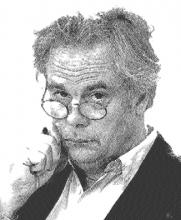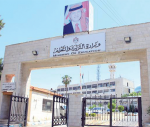You are here
Unity with Europe answer to Turkey’s attempted coup
Jul 21,2016 - Last updated at Jul 21,2016
Europe is under attack from both ends. In the West — Brexit, the referendum to take Britain out of the European Union. In the east — Turkey, which is not formally a member because of the veto by the conservative last president of France, Nicolas Sarkozy.
Both have led to dreadful consequences.
The EU was meant to bring together the countries of Europe who were antagonists in two world wars by means of an economic union in order to bind Europe together so its countries would never fight another European war. Britain leaving shatters that profound political pact.
Turkey has both been dealt a mean hand and, under President Recep Tayyip Erdogan, shot itself in the foot.
First, because of its economic advance; second, the fact that it is a bridge between Europe and Asia, literally so since a bridge links the two parts of Turkey; and, thirdly, because it has long been an important member of NATO, many European countries, not least Britain, have wanted it to be admitted into the union. (The US too holds a long-time policy that supports entry for Turkey.)
There were many years of high expectancy during the 1990s and 2000s during which Turkey revised hundreds of its laws, not least the ones on human rights, to bring them in line with European standards.
There was still work to be done when France closed the gate. With the incentive removed, the reforms then quickly ground to a halt, which is why in the last couple of years Erdogan has been able to jail journalists and judges critical of the government.
It appeared that Erdogan was determined to turn away from Europe and move towards the Islamic world. Then came last year’s great refugee crisis with hundreds of thousands of Syrian, Iraqi and Afghan refugees making their way through Turkey, then boarding small inflatable boats to cross the Mediterranean to Greece and to the EU.
Europe felt overwhelmed and eventually, under the leadership of Chancellor Angela Merkel of Germany, it made a deal. If Turkey agreed to help stop the refugee flow, visa-free travel for Turks going to Europe would be introduced. More important, the EU agreed to re-start the negotiations for entry and to do so at a good pace.
Counterproductively, Europe has dragged its feet on both these promises, although Turkey has honoured its side of the bargain and the refugee flows have more or less stopped.
Many in the West, especially in recent years, have regarded Erdogan as a would-be tyrant and, indeed, he has moved to gain too much power for himself. They fear Turkey’s Islamisation, despite the fact that with the secular portion of the population being around 50 per cent he must know he can only go so far.
The coup attempt was totally unexpected and was carried out in a highly coordinated way, involving parts of the air force as well as the army. How Turkey’s intelligence service did not pick up on this is to be wondered at.
The coup leaders, presumably, wanted to keep Turkey secular and were concerned about the way an Islamist-inclined Erdogan was going, which has been the military’s tradition since the founding of modern, secular, Turkey by Ataturk.
I believe the attempted coup would not have happened if Europe had reciprocated Erdogan’s overtures last year at a truly rapid pace.
Binding Turkey into the European Union — as Britain and the US have long argued — is necessary to keep Turkey 100 per cent democratic and a serious observer of human rights, (including making peace with its Kurds), as well as giving Europe a buffer against the unrest-ridden Arab world.
Islamisation would have continued, but in a more moderate and temperate way.
Now the way forward looks difficult. To say the least, messy.
Of course, the soldiers who participated deserve to be punished. (But not executed as many demonstrators are calling for — that would push Turkey away from the EU.) The detained judges must be released.
Erdogan must give a very loud thank-you to those hundreds of thousands of secular-minded demonstrators who joined the Islamist-inclined to save the government from the putsch.
For them, for all his faults, Erdogan is a democratically elected leader and that they wanted respected.
If Erdogan wants to be known as a democrat he must restore the earlier regard he had for human rights and free detained journalists, and other peaceful critics of his regime and respect the rights of members of parliament.
His primary task now is to bind the nation together — and that includes the Kurds, whom he has cast adrift the last few years.
Europe and Turkey have to work closely together to contain the damage and to propel Turkey forward into the EU.













